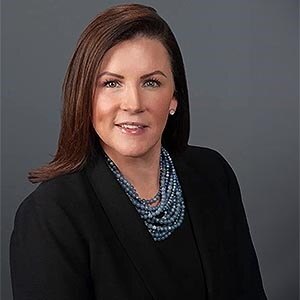Discover supply chain insights, megatrends, and predictions from both sides of the pond
Decarbonization is a growing priority across the globe, and the supply chain is no exception. Supply chain functions are increasingly exploring sustainable products and solutions amid rising demands for reporting and statistics, particularly as the pending EU Corporate Sustainability Reporting Directive (CSRD), requires reporting of indirect emissions throughout the value chain.
While adopting EVs, using renewable energy, or optimizing operations are small steps in an organization’s sustainability journey, assessing logistics infrastructure is perhaps the industry’s best-kept secret when it comes to transforming operations in favor of sustainable practices. To further unpack this concept, we’re joined by Brookfield senior leaders from both sides of the pond; Dan Benhamou, Senior Vice President and European Logistics Lead, and Devin Barnwell, Managing Partner and Global Head of Portfolio Management.

Can we start with an introduction to you, your career history, and how you came to be in your current positions?
Dan: “I joined Brookfield from Morgan Stanley in 2016, with a background in growing real estate businesses across asset classes, including Gazeley and Castignac. My focus shifted over time to be solely focused on logistics, and I have since watched Brookfield significantly increase its footprint across Europe. A key part of my role in leading our European efforts is developing our vertically integrated teams and footprint by following the successful strategy implemented in the US.”
Devin: “After 18 years also at Morgan Stanley, I joined Brookfield in 2019. I initially led US Logistics Asset Management, but quickly recognized that my experience in logistics, value creation, and execution aligned with Brookfield’s transition from operating portfolio companies to building in-house capabilities to develop, own, and manage a best-in-class logistics platform.”
How do you think companies can build supply chain resiliency?
Devin: “Geopolitical uncertainties, the slowdown of economies, and changing consumer-buyer trends are just a few reasons why working towards supply chain strategies that don’t rely on a single global source is essential to build resilience.
“While the world is very much still connected, wars, sanctions, and regulations will not only impact how and where companies manufacture goods, but also where the components and inventory are stored. In fact, there was a recent announcement of a $20 billion investment to onshore manufacturing capacity of cranes for US ports to secure the country’s own supply chains and port infrastructure.
“It isn’t just on a global scale where we see tenants looking to build resiliencies in their own supply chains; we often meet with tenants who express the need for multiple warehouse facilities to allow them the ability to shift between geographies or shipping methods. Agility is essential – our strength is combining the global reach of Brookfield with our local ‘boots on the ground’ approach to implement actionable solutions.”
Dan: “We take a holistic view of these challenges; individual incidents reflect the underlying weaknesses of a traditional supply chain infrastructure and highlights the longer-term megatrend of deglobalization, which is at the heart of our three Ds strategy – Deglobalization, Digitalization, Decarbonization.
“However, in Europe, we believe the trend will steer more towards regionalization, with local hubs that allow much more adaptability when navigating unforeseen challenges. We’re supporting our customers across all sectors to pivot away from global supply chains as a way of building greater resilience, as well as helping them consider the logistics infrastructure they need today and in the future.”
How are you seeing sustainable business practices implemented in supply chain functions?

Dan: “Supply chain decarbonization is a growing business priority in Europe, especially in the face of reporting indirect emissions required under the pending EU CSRD. From moving goods to the facilities they are stored in, decarbonizing is trending across the industry, posing a huge opportunity for us to help our tenants. As one of the leading impact investors, Brookfield benefits from a highly experienced network to support the implementation of solutions that tackle carbon emissions.
“There’s a lot of attention on greening supply chains, but logistics infrastructure is a largely untapped opportunity to decarbonize supply chains. For example, the tenants at the e-Valley logistics park in France share infrastructure and resources and can reduce transportation to end users due to the strategic location of the hub being near Paris, helping to improve Scope 1 and Scope 2 credentials.”
Devin: “The US typically trails the EU on sustainability, although more actionable plans have been developed in recent years. IRA legislation has been an impetus to decarbonization, and in logistics, we’ve tapped into these opportunities by partnering with Brookfield’s renewables businesses to leverage our rooftops for solar power production.
“We have a solar project commencing in Massachusetts, which will kick off a larger portfolio initiative. Local grid restrictions and differing state policies can hinder broad scale projects, but the communities in which we operate have been incredibly receptive to the benefits of installing solar panels on otherwise unused roof structures.”
What impact does AI and automation have on supply chains?
Dan: “We’re seeing emerging technologies shaking up the logistics game, such as automated order picking to drive greater efficiency. While there’s a general shift towards data driven decision making, I think an underrated revolution is the emergence of a world full of sensors, which can pick up things like location, temperature, and humidity.
“This mass of information can be difficult to translate into decisions, but when enabled by AI, more efficiencies will be unlocked and perhaps more surprisingly, we will come to conclusions that surprise us. For example, we’re starting to include unusual locations that the data reveals as strategically advantageous positions for tenants.”
Devin: “As AI and machine learning becomes more accessible, we’re seeing the increasingly significant impact it has on the speed at which operators can intake data, process it, and apply insights, whether it’s weather patterns, port congestions, manufacturing delays, or component pricing.
“Combining such speed-to-insight with a paradigm shift to increasing resiliency and reducing carbon impact, tenant decisions are changing. We aim to stay ahead by applying machine learning for predictive analysis; we never apply broad strokes to decision making, but we will continue to refine AI tools to uncover insights and ensure our strategy meets both current and future demand.”
How can teams in Europe and the US learn from one another?
Dan: “Our primary focus is to be a partner to our tenants, especially those with global supply chain challenges. We rely on our strength as a global platform with a local presence to build a reputation for reliability, so our teams in Europe and the US share a deep knowledge and understanding of tenants.
“Taking a higher-level view, as a technological leader and single market, the US is a perfect ground for innovation, meaning emerging trends can be trialed and later replicated in Europe. On the other hand, Europe is at the forefront of ESG standards, which can then be implemented in the US.”
Devin: “Although Dan is right, our shared learning is not limited to the real estate sector or across geographies. Brookfield’s businesses all work together; we engage in active discussions with the transportation and ports teams, for instance, or collaborate with someone from the renewables division when looking at new sustainability initiatives. A culture of knowledge sharing and connecting teams across the globe leads to unique investment opportunities and outperformance through value creation.”
What are your predictions on what 2024 will bring for supply chain functions?
Dan: “We expect three core trends in 2024: digitalization, deglobalization, and decarbonization. As organizations strive to build greater resiliency, fierce competition is likely to mount in Europe for logistics infrastructure that is local, fits with a green strategy, and drives efficiency through technology. Our aim in Europe is to continue to deliver state-of-the-art assets in response to the increasing demand for local warehousing and strengthen our reputation as a reliable supply chain partner.”
Devin: “The future of logistics will be altered by digitalization trends; while goods will always come from warehouses, how they get there, how long they are stored, and how they are delivered will change dramatically with AI and data analytics. I am confident in our ability to meet evolving challenges, not only because of disciplined decisions but because we always have an eye on future-proofing the business.”
Is there anything you would like to add?
Devin: “Innovation is central to our strategic planning, and we believe that logistics will be transformed globally over the next cycle, tied to an array of advances like AI, robotics, drones, and autonomous vehicles.
“One of the most critical mistakes we see as real estate owners is when supply chain professionals don’t have an active dialogue with real estate professionals. Only when these two groups effectively work together during decision making, can the organization be well organized, efficient, and poised for success.”
